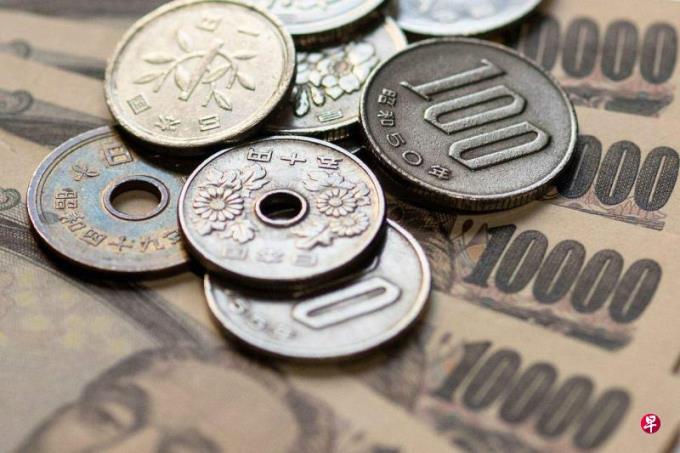
The scale of GDP (GDP) in Germany in 2023 exceeds Japan, and is considered that Japan's national strength is relatively declining.If Japan and Germany's 2023 GDP announced in November 2023, the average exchange rate of that year was counted as US dollars, Germany was US $ 4.46 trillion (about S $ 6.07 trillion), and Japan was US $ 421 trillion.Japan's GDP scale has been second only to the United States in the United States since the end of the 1960s, ranking second in the world for more than 40 years. However, it was surpassed by China in 2010, ranking third, and is currently in the fourth place in the world.
China ’s GDP is very normal than Japan, because it has a population of 1.4 billion, 10 times more than Japan.In other words, as long as China's per capita GDP exceeds 10 % of Japan, the economic scale will be larger than Japan.However, the German population is 83 million, which is about two -thirds of Japan.The German population has always been less than Japan, but the economic scale exceeds Japan, so many people think that Japan's economic status has fallen again.
I have some doubts about the sensation caused by Japanese GDP by Germany.First of all, even if GDP is overtaken by Germany, the level of welfare of Japanese citizens has not declined, and German national life will not become better.Speaking of straightforwardness, the size of the GDP is not significant, because it becomes larger, and the level of national welfare will not increase.The GDP of Nordic countries is much smaller than Japan, but the level of welfare is higher than that of Japan. This is because the per capita GDP level of the nationals is higher than that of Japan.For national benefits, it is important not the scale of GDP, but the standard of per capita GDP.
Japan's GDP is surpassed by Germany. What is the problem?
This has short -term and long -term reasons.The short -term reason is that the yen exchange rate fell.The nominal GDP of Japan in 2012 and 2023 calculated in yen, respectively 55.55 trillion yen and 59.19 trillion yen, an increase of 7.5%.However, the same GDP is priced in US dollars, from $ 6.9 trillion to $ 4.2 trillion, a 39%decrease.This is because during this period, the yen exchange rate fell from 1 US dollars to 79.8 yen to 140.5 yen, down 43%.If the yen exchange rate does not fall without this, the Japanese German GDP should not reverse.
The decline in the yen exchange rate is caused by Japanese financial policies.In order to get rid of the tightening of the nose and implement unprecedented financial easing policies, the bank's interest rate is almost zero.Therefore, the interest rate difference with Europe and the United States has opened, and the flow of funds to overseas has caused a sharp decline in the yen exchange rate.
Especially after 2022, affected by Russia's invasion of Ukraine, energy prices have risen sharply, and domestic prices in various countries are also soaring.In contrast, Japan aims to get rid of the tightness of the passage and continue to implement the financial easing policy, but Europe and the United States will increase interest rates with the goal of inhibiting inflation.As a result, the interest rate difference between Japan and Europe has continued to expand, and the yen has devalued further.
Long -term reasons are attributed to the downturn in Japan's economy.Based on the currency of the country, compared the GDP growth rate of Japan and Germany from 2000 to 2023. Japan's actual growth rate was 0.7%, Germany was 1.1%, Japan's nominal growth rate was 0.5%, and Germany was 2.9%.The long -term difference in this growth rate causes GDP scale differences.If the gap between the nominal growth rate and the actual growth rate is considered as the GDP flat reduction price index (average price index), the average price index of Japan during this period is negative.Due to the gap between the long -term growth rate, the German name GDP doubled, while Japan increased by only 13%.Japan's nominal GDP growth rate is long -term sluggish because of insufficient basic growth.In the final analysis, the Japanese economy has faced weak growth and shrinkage for a long time, so it leads to the reversal of the Japanese and German GDP.
Looking forward to the future.The yen exchange rate is expected to rise gradually in the future. So far, it can be described as a bit of financial easing policy. It will gradually normalize in the near future, because the price increase is stable at about 2%, which will promote the yen interest rate to rise.In the contrary, European and American interest rates will decline in the context of stable prices.At that time, the interest rate difference between Japan and Europe and the United States will shrink, and the yen exchange rate will rise.
As for the economic growth rate, Japan's actual growth rate and nominal growth rate are increasing. The actual growth rate in 2023 is 1.9%, and the nominal growth rate is 5.7%.The increase rate of price increases is getting higher and higher, and the GDP price reduction index should also be improved in the future.This is at least expected to avoid developing a very low growth rate among developed countries.
In summary, it is foreseeable that in the near future, Japan's GDP will surpass Germany again.However, even so, Japan must fully recognize that it is necessary to prevent shrinkage from happening again, and focus on solving the long -term problem of improving the economic foundation's economy.
The author is a visiting professor at Dazheng University in Japan




